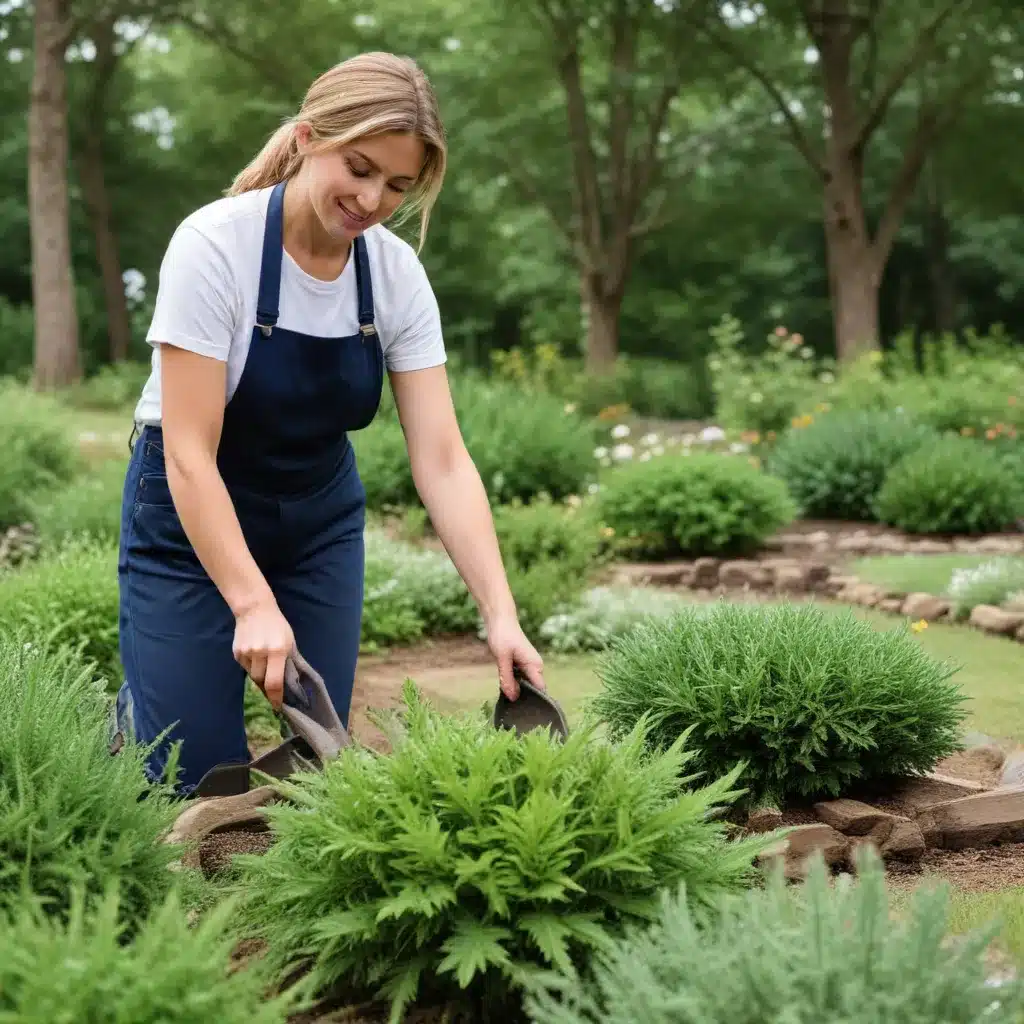
When you step onto the grounds of Crooked Pines Farm, it’s immediately clear this is more than just a place to grow food. As a family-operated educational farm, we’re dedicated to nurturing a deep connection between people and the natural world around them. While our lush vegetable beds, blooming flower gardens, and abundant orchards certainly provide a bountiful harvest, the true magic happens when curious kids and nature-starved adults venture out on our farm trails to discover the wonders of the great outdoors.
Soil Preparation
The key to a thriving garden starts with healthy soil. At Crooked Pines, we take a holistic approach, layering compost, aged manure, and cover crops to build nutrient-rich, biologically active earth that will nourish our plants. We also regularly test our soil pH and amend it with lime or sulfur as needed to keep our plants happy. Preparing the soil properly before planting is foundational, but it’s an ongoing process of continual improvement.
Plant Selection
With so many tempting seed catalogs to pore over each winter, it can be tough deciding what to grow. We always start by focusing on the crops we love to eat the most – juicy tomatoes, crisp cucumbers, leafy greens, and fragrant herbs. Then we branch out to include a diverse mix of annuals, perennials, and biennials that will attract pollinators and beneficial insects to our gardens. Whether you’re a seasoned green thumb or just starting out, choosing the right plants for your climate and growing conditions is key.
Watering Techniques
Proper watering is essential for plant health and productivity. At Crooked Pines, we use a combination of drip irrigation, soaker hoses, and hand-watering to deliver moisture directly to the roots. This helps us minimize evaporation and weed growth, while also conserving precious water resources. We also collect rainwater in barrels to supplement our irrigation needs. Observing weather patterns and monitoring soil moisture levels allows us to fine-tune our watering schedule for maximum efficiency.
Raised Bed Design
For many of our vegetable crops, we favor raised garden beds over traditional in-ground planting. The elevated design improves drainage, warms the soil earlier in spring, and makes tending the plants more ergonomic. We build our beds using untreated lumber, corrugated metal, or concrete blocks, then fill them with a custom blend of compost, topsoil, and vermiculite. Arranging the beds in an efficient square foot gardening layout maximizes our limited growing space.
Crop Rotation
To maintain soil fertility and ward off pests and diseases, we practice crop rotation in our vegetable gardens. Each year, we move our plant families – like nightshades (tomatoes, peppers, eggplant), legumes (beans, peas), and brassicas (kale, broccoli, cabbage) – to a new bed. This break in the planting cycle helps replenish nutrients and interrupt pest and disease cycles.
Pest Management
Organic pest control is a constant battle, but we’ve found some effective strategies that work well at Crooked Pines. We use row covers, companion planting, and insecticidal soaps to manage common garden pests like aphids, squash bugs, and tomato hornworms. For larger critters like deer and rabbits, we rely on fencing, netting, and deterrents. And when we do spot an unwanted visitor, we try to practice integrated pest management, addressing the root cause rather than just treating the symptoms.
Annuals and Perennials
Our flower gardens are a colorful mix of annual and perennial plants. The annuals – like zinnias, cosmos, and marigolds – provide a bold, vibrant burst of color all season long. Meanwhile, the perennials – like peonies, irises, and daylilies – return faithfully year after year, often with minimal maintenance. We strategically place them to create a harmonious, visually striking display.
Companion Planting
Thoughtful companion planting is a key permaculture principle we embrace at Crooked Pines. By interplanting different crops that benefit each other, we can maximize yields, deter pests, and create a thriving ecosystem. For example, we’ll tuck marigolds and nasturtiums among our vegetable beds to repel harmful insects, while also allowing our pollinator-attracting sunflowers and cosmos to mingle with the edibles.
Cutting Garden
One of our favorite spots on the farm is the dedicated cutting garden, where we grow an abundance of beautiful, long-stemmed flowers perfect for bringing indoors. From dahlias and snapdragons to lisianthus and sweet peas, these blooms not only brighten our own home but also make wonderful gifts and bouquets for our farm stand customers.
Composting
At the heart of our sustainable growing practices is a robust composting system. We collect all our kitchen scraps, yard trimmings, and animal manures, blending them into nutrient-dense compost that we use to nourish our gardens. This closed-loop approach helps us minimize waste, build soil health, and reduce our reliance on commercial fertilizers.
Water Conservation
Despite the abundant rainfall in our Pacific Northwest climate, we still strive to use water as efficiently as possible at Crooked Pines. In addition to our rainwater harvesting system, we’ve adopted drip irrigation and soaker hoses to deliver moisture directly to the root zone. We also mulch heavily to suppress weeds and retain soil moisture. And when it comes to our ornamental plantings, we favor drought-tolerant native species that require less supplemental watering.
Organic Fertilizers
Rather than relying on synthetic chemical fertilizers, we opt for organic, slow-release products like compost, bone meal, and rock phosphate to feed our plants. These gentle amendments build long-term soil fertility without the risk of nutrient runoff or plant burn. We also make our own compost tea to provide a liquid boost of micronutrients. By nurturing the soil food web, we create a thriving, resilient growing environment.
Whether you have a sprawling country acreage or a petite urban patio, the principles of sustainable, regenerative gardening at Crooked Pines can be applied anywhere. By prioritizing healthy soil, diverse plantings, and holistic pest management, you can grow an abundance of nutritious food, beautiful flowers, and dynamic ecosystems – all while minimizing your impact on the planet. So get out there, get your hands dirty, and discover the joys of homegrown goodness!


